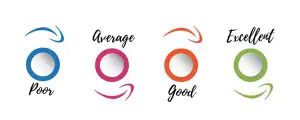Discover the Benefits of 1200 Calorie Diets: Your Guide to Healthy Eating

- Benefits of Following a 1200 Calorie Diet
- Understanding the Science Behind 1200 Calorie Diets
- Key Components of a Balanced 1200 Calorie Meal Plan
- Tips for Successful Implementation of a 1200 Calorie Diet
- Common Mistakes to Avoid When Following a 1200 Calorie Diet
- Potential Risks and Precautions of a 1200 Calorie Diet
- Frequently Asked Questions about 1200 Calorie Diets
In today's fast-paced world, maintaining a healthy lifestyle can be a challenge. However, one effective way to achieve this is by following a 1200 calorie diet. This type of diet involves consuming only 1200 calories per day, which is lower than the average daily intake for most individuals. By carefully selecting nutrient-dense foods within this calorie limit, you can still enjoy delicious meals while achieving your weight loss or maintenance goals. In this article, we will explore the benefits, science, components, tips, and precautions associated with a 1200 calorie diet. So let's dive in and discover how this approach to healthy eating can transform your life!
Benefits of Following a 1200 Calorie Diet
Following a 1200 calorie diet can offer numerous benefits. Firstly, it promotes weight loss by creating a calorie deficit, as the average person typically requires around 2000 calories per day. This deficit encourages the body to burn stored fat for energy, leading to gradual and sustainable weight loss. Additionally, a 1200 calorie diet can help improve portion control and promote mindful eating habits. By focusing on nutrient-dense foods within this calorie limit, individuals can ensure they are consuming a balanced diet that is rich in vitamins, minerals, and essential nutrients. Lastly, a 1200 calorie diet can also help regulate blood sugar levels and reduce the risk of chronic diseases such as diabetes and heart disease.
Understanding the Science Behind 1200 Calorie Diets
To understand the science behind 1200 calorie diets, it's important to recognize that our bodies require a certain amount of energy to function properly. This energy is measured in calories, and consuming fewer calories than our body needs can lead to weight loss.
A 1200 calorie diet is considered a low-calorie diet, as it provides significantly fewer calories than the average daily intake for most individuals. By creating a calorie deficit, where you consume fewer calories than your body burns, you can promote weight loss.
When you consume fewer calories than your body needs, it starts using stored fat as an energy source. This process leads to weight loss over time. However, it's crucial to ensure that these calories come from nutrient-dense foods to maintain overall health.
It's important to note that while a 1200 calorie diet can be effective for weight loss, it may not be suitable for everyone. It's always recommended to consult with a healthcare professional or registered dietitian before starting any new dietary plan. They can help determine if this type of diet is appropriate for your individual needs and goals.
Key Components of a Balanced 1200 Calorie Meal Plan
When following a 1200 calorie diet, it is crucial to ensure that your meals are well-balanced and provide all the necessary nutrients. Here are the key components of a balanced 1200 calorie meal plan:
1. Protein: Include lean sources of protein such as chicken, fish, tofu, or legumes in each meal. Protein helps keep you feeling full and supports muscle growth and repair.
2. Whole Grains: Opt for whole grain options like brown rice, quinoa, or whole wheat bread. These provide fiber, vitamins, and minerals while keeping you satisfied.
3. Fruits and Vegetables: Fill half of your plate with colorful fruits and vegetables. They are low in calories but high in essential nutrients, antioxidants, and fiber.
4. Healthy Fats: Incorporate sources of healthy fats like avocados, nuts, seeds, or olive oil into your meals. These fats are important for brain function and overall health.
5. Dairy or Alternatives: Choose low-fat dairy products like milk or yogurt for calcium and protein. If you're lactose intolerant or prefer plant-based options, go for fortified alternatives like almond milk or soy yogurt.
6. Portion Control: Pay attention to portion sizes to ensure you're not exceeding your calorie limit. Use measuring cups or a food scale to accurately measure your servings.
Remember to consult a healthcare professional before starting any new diet plan to ensure it is suitable for your individual needs and health goals.
Tips for Successful Implementation of a 1200 Calorie Diet
1. Plan your meals in advance: Create a weekly meal plan and make sure it includes a variety of nutrient-dense foods to meet your nutritional needs.
2. Portion control is key: Use measuring cups or a food scale to accurately measure your portions. This will help you stay within your calorie limit and avoid overeating.
3. Include plenty of fruits and vegetables: These low-calorie, high-fiber foods will help you feel full and satisfied while providing essential vitamins and minerals.
4. Stay hydrated: Drink plenty of water throughout the day to keep your body hydrated and help control hunger cravings.
5. Choose lean protein sources: Opt for lean meats, poultry, fish, tofu, or legumes to meet your protein needs without consuming excessive calories.
6. Be mindful of added sugars and fats: Limit your intake of sugary drinks, processed snacks, and fried foods as they can quickly add up in calories.
7. Incorporate regular physical activity: Combine your 1200 calorie diet with regular exercise to enhance weight loss and improve overall health.
Remember to consult with a healthcare professional before starting any new diet plan, especially if you have any underlying health conditions or dietary restrictions.
Common Mistakes to Avoid When Following a 1200 Calorie Diet
When following a 1200 calorie diet, it's important to be aware of common mistakes that can hinder your progress. One common mistake is not properly tracking your calorie intake. It's easy to underestimate portion sizes or forget about the calories in certain foods. To avoid this, make sure to accurately measure and record everything you eat.
Another mistake is relying too heavily on processed or packaged foods. While these may be convenient, they often contain added sugars, unhealthy fats, and high levels of sodium. Instead, focus on whole, nutrient-dense foods like fruits, vegetables, lean proteins, and whole grains.
Skipping meals is another pitfall to avoid. While it may seem like a quick way to cut calories, skipping meals can lead to overeating later in the day and mess with your metabolism. Aim for three balanced meals and incorporate healthy snacks if needed.
Lastly, don't forget about hydration. Many people overlook the importance of drinking enough water when trying to lose weight. Staying hydrated not only helps with digestion but also keeps you feeling full and energized.
By being mindful of these common mistakes and making conscious choices about your food intake, you can successfully follow a 1200 calorie diet and achieve your health goals.
Potential Risks and Precautions of a 1200 Calorie Diet
While a 1200 calorie diet can be effective for weight loss, it is important to approach it with caution. Severely restricting calories can lead to nutrient deficiencies, fatigue, and muscle loss. It is crucial to ensure that the diet includes a variety of nutrient-dense foods to meet your body's needs.
Additionally, individuals with certain medical conditions such as diabetes, heart disease, or eating disorders should consult with a healthcare professional before starting a 1200 calorie diet. They may require personalized modifications or alternative dietary approaches.
It is also important to listen to your body and not push yourself too hard. If you experience extreme hunger, dizziness, or other negative symptoms, it may be a sign that the calorie intake is too low for your individual needs. Adjustments may need to be made to ensure your health and well-being.
Remember, sustainable weight loss is about making long-term lifestyle changes rather than relying on short-term restrictive diets. It is always recommended to seek guidance from a registered dietitian or nutritionist who can provide personalized advice based on your specific goals and health status.
Frequently Asked Questions about 1200 Calorie Diets
1. Is a 1200 calorie diet suitable for everyone?
No, it's important to consult with a healthcare professional before starting any diet plan, especially if you have underlying health conditions or dietary restrictions.
2. Will I feel hungry on a 1200 calorie diet?
Initially, you may experience some hunger as your body adjusts to the lower calorie intake. However, choosing nutrient-dense foods and spreading out your meals throughout the day can help minimize hunger pangs.
3. Can I still enjoy my favorite foods on a 1200 calorie diet?
Yes, moderation is key! While it's important to prioritize nutrient-rich foods, there is room for indulgence in small portions occasionally. Remember to focus on overall balance and variety in your meal plan.
4. Can I exercise while following a 1200 calorie diet?
Yes, exercise can complement your weight loss efforts and improve overall health. However, it's crucial to listen to your body and adjust your activity level accordingly. Consult with a fitness professional for personalized guidance.
5. How long should I follow a 1200 calorie diet?
The duration of a 1200 calorie diet depends on individual goals and needs. It's best to work with a registered dietitian or nutritionist who can create a customized plan based on your specific requirements.
6. Will I lose weight quickly on a 1200 calorie diet?
Weight loss results vary from person to person depending on factors such as metabolism and activity level. While some individuals may experience rapid weight loss initially, it's important to aim for sustainable and gradual weight loss over time.
7. Are there any side effects of following a 1200 calorie diet?
Some people may experience side effects such as fatigue, dizziness, or nutrient deficiencies if the diet is not properly balanced or if they have specific medical conditions. Regular monitoring by healthcare professionals is recommended.
Remember, it's crucial to consult with a healthcare professional or registered dietitian before starting any new diet plan to ensure it aligns with your individual needs and goals.
While a 1200 calorie diet can offer numerous benefits such as weight loss and improved overall health, it may not be suitable for everyone. It is important to consider your individual needs, goals, and lifestyle before embarking on any dietary plan.
If you have specific health conditions or dietary restrictions, it is crucial to consult with a healthcare professional or registered dietitian before starting a 1200 calorie diet. They can provide personalized guidance and ensure that you are meeting all your nutritional requirements.
Additionally, it is essential to approach a 1200 calorie diet with the right mindset. It should not be seen as a quick fix or temporary solution but rather as a long-term commitment to healthy eating habits.
Remember that sustainable weight loss and overall well-being are achieved through balanced nutrition, regular physical activity, and adopting healthy lifestyle habits. A 1200 calorie diet can be an effective tool in achieving these goals if done correctly and safely.
Ultimately, the decision to follow a 1200 calorie diet should be based on careful consideration of your individual circumstances. By understanding the benefits, risks, and precautions associated with this type of eating plan, you can make an informed choice about whether it is right for you.
Always prioritize your health and well-being above all else when making decisions about your dietary choices.
Published: 22. 01. 2024
Category: Health



